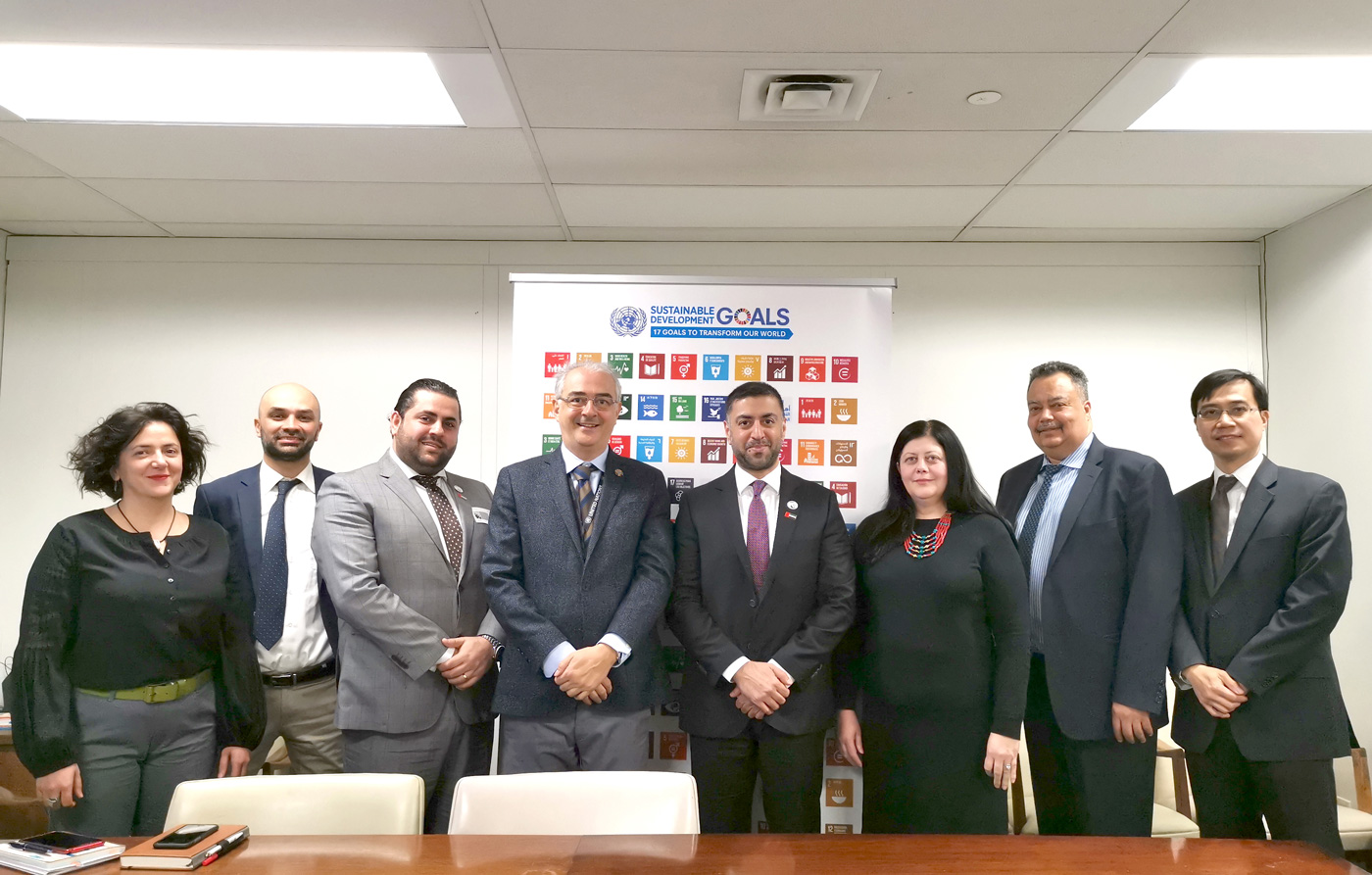
Following up on the outcomes of the first conference of digital economy, held in Abu Dhabi last December, a delegation from Arab Economic Unity Council visited the headquarters of United Nations Department of Economic and Social Affairs (UN-DESA), to discuss the coming steps to support Arab governments in their digital transformation.
H.E. Dr. Ali Mohamed Al-Khouri, Advisor, Arab Economic Unity Council League of Arab States, met with Vincenzo Aquaro, Chief of E-Government Branch, Division for Public Administration and Development Management (DPADM), UN-DESA. Reviewing the most significant points of the strategic Arab common vision for digital economy, represented with five pillars which are, digital foundation, digital innovation, digital government, digital operations, and digital citizen. All those points and pillars are detailed into 50 programs, that are supposed to lead to the success of digital transformation in Arab countries, and achieving the desired objectives of the strategic vision.
They also reviewed the pillars of prioritizing those programs, depending on the complexity of implementation, following three criteria which are ease of implementation, fund availability, and sustainability risks. Also, the prioritization pillars would depend on measuring the impact, following four criteria which are economic growth, social impact, availing job opportunities, and improving the standard of living.
The study of the strategic Arab common vision showed that the impact of digital economy on the Arab world is going to be significant, where by the year 2030, the Arab GDP can grow from 2.6 Trillion US Dollars to up to 4.15 Trillion US Dollars if the strategic vision programs are implemented. Also, the impact of digital growth, reaching the complete digital maturity of the Arab region, can yield up to 333 Billion US Dollars annually, providing 60 new Million job opportunities through the coming two decades.
Aquaro expressed how pleased he is with the outcomes of the strategic vision, and the level of cooperation among international organizations and establishments to make it successful, and supporting implementing its programs, moreover, achieving the international objectives of sustainable development. As this strategic vision has positive impacts, most important of them is providing job opportunities, and integration of development plans for the Arab world, and directing the Arab and global investments to action them through one system.
Also Aquaro emphasized that the strategic vision could have never been launched without the support of United Arab Emirates leadership, and the sponsorship of H.H. Sheikh Mohammed bin Zayed Al Nahyan for the first conference of digital economy, that was held in Abu Dhabi last December, and was the launching point for the strategic Arab common vision. H.E. Dr. Ali Mohamed Al-Khouri, thanked the E-Government Branch, DPADM, UN-DESA, for the effort they exerted, contributing to preparing and reviewing the strategic vision in the past period, and continuing the cooperation between the two entities to achieve the common aspirations for the good of Arab societies.
| About | |
|---|---|
| Initiatives | |
| Knowledge | |
| Services | |
| Media Center | |
| Contact |